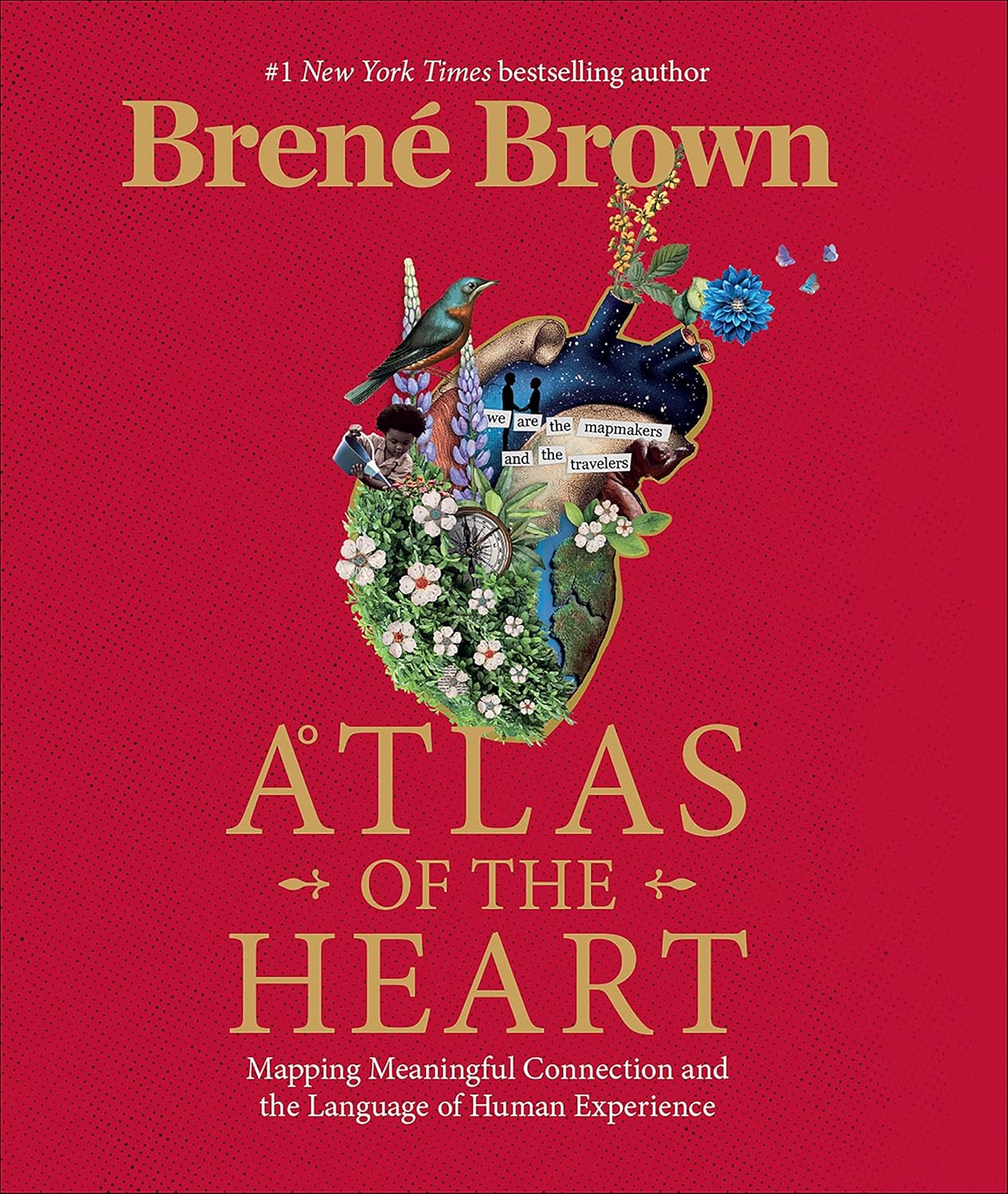📣 Announcement!: May is the mental health awareness month and every day, we’ll share one short, powerful insight from the world’s best books on psychology, happiness, resilience, and the human mind — paired with a simple action you can take!
We believe mental health isn’t just about coping — it’s about understanding why we think, feel, and behave the way we do. And when you understand yourself, you become a better friend, parent, leader, and human.
PS: The series is done in partnership with MelodyAI (launching soon/apply to get an invite), a voice-first AI companion that helps you navigate your inner world. Think of it as someone you can talk to — whenever you need to reflect, reset, or just feel heard.
If you find value here, forward it to someone who needs it. You never know what small idea might change someone’s day.
[Big ideas from Brené Brown’s book Atlas of the Heart]
Ever felt something you couldn’t quite name?
Like you’re tense but not angry. Heavy but not exactly sad. You tell someone you’re “stressed,” but that doesn’t really explain it — not to them, and not even to you.
Most of us grow up with a shockingly small emotional vocabulary. We learn the basics: happy, sad, angry, tired. Maybe “anxious” if it got serious. But the real landscape of human feeling is far more nuanced. And the fewer words we have, the harder it is to navigate.
That’s where Brené Brown’s work hits like a thunderclap.
In a massive study, she found that most people could only name three emotions in the heat of a moment: happy, sad, and angry. But those with high emotional granularity — the ability to pinpoint exactly what they’re feeling — were more resilient, more self-aware, and better at resolving conflict. They didn’t just feel better; they understood why.
I only recently realized how flat my own emotional vocabulary was. A few weeks ago, I kept telling people I was “burned out.” Turns out, what I actually felt was disappointed. Disappointed in myself, in a project that didn’t go how I’d hoped. But I didn’t have that word in reach, so I just walked around in a fog.
vo

That one switch — from vague to specific — made all the difference.
Because once you can name it, you can do something about it.
Today’s Idea
Name it or Tame it.
Build your emotional vocabulary. Think of it as updating the internal language pack for your own brain.
Try This
For the next 24 hours, anytime you feel a strong emotion, pause. Don’t rush to “I’m fine” or “I’m annoyed.” Try using a more specific word.
Are you overwhelmed or just understimulated? Lonely or left out? Frustrated or ashamed?
To help: Brené Brown compiled a list of 87 human emotions in her book Atlas of the Heart. If you want a shortcut, just Google “Brené Brown emotions list” and keep it handy.
Label it better. Feel it fully. That’s the first step to moving through it.


